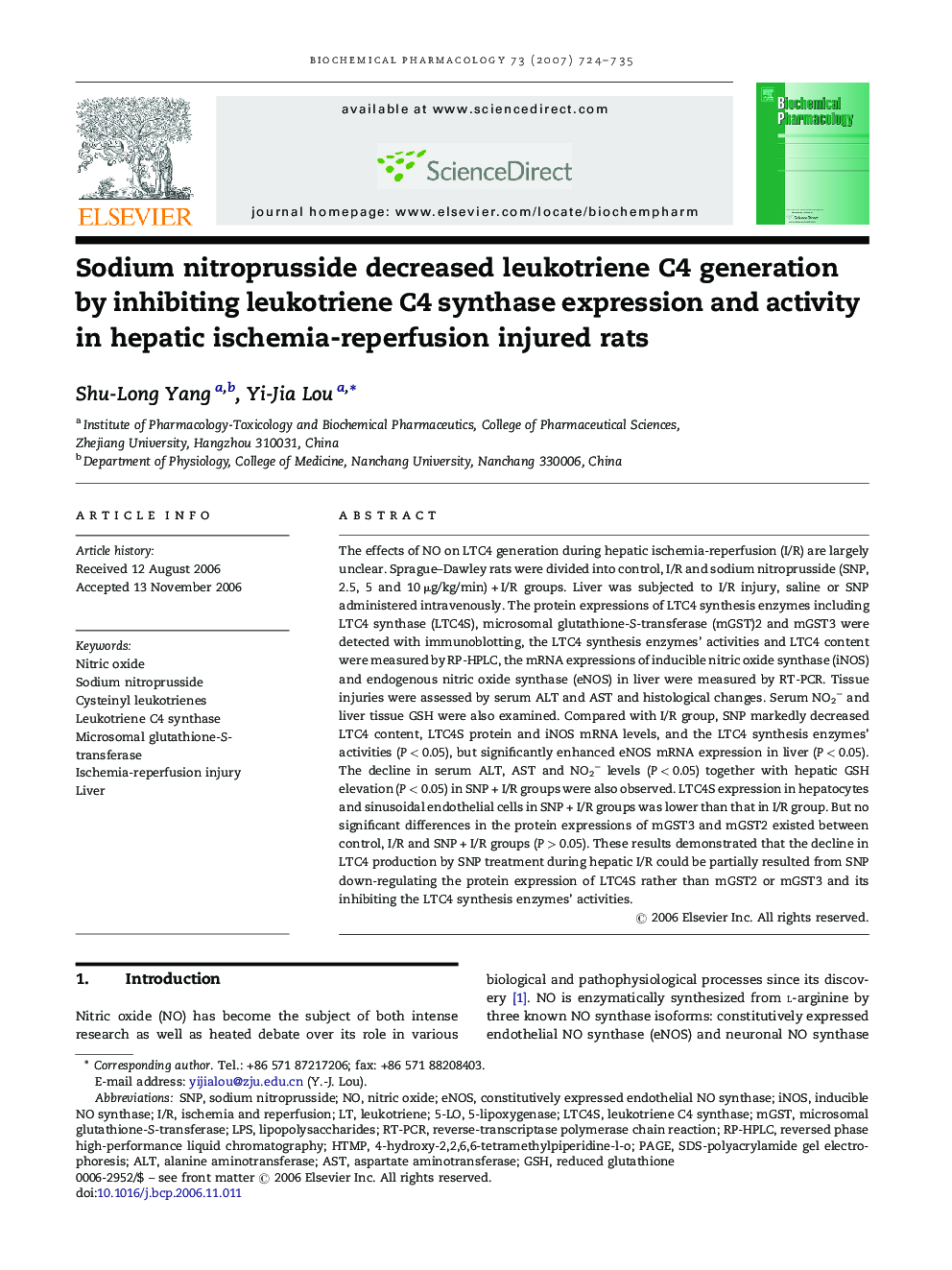| Article ID | Journal | Published Year | Pages | File Type |
|---|---|---|---|---|
| 2514883 | Biochemical Pharmacology | 2007 | 12 Pages |
The effects of NO on LTC4 generation during hepatic ischemia-reperfusion (I/R) are largely unclear. Sprague–Dawley rats were divided into control, I/R and sodium nitroprusside (SNP, 2.5, 5 and 10 μg/kg/min) + I/R groups. Liver was subjected to I/R injury, saline or SNP administered intravenously. The protein expressions of LTC4 synthesis enzymes including LTC4 synthase (LTC4S), microsomal glutathione-S-transferase (mGST)2 and mGST3 were detected with immunoblotting, the LTC4 synthesis enzymes’ activities and LTC4 content were measured by RP-HPLC, the mRNA expressions of inducible nitric oxide synthase (iNOS) and endogenous nitric oxide synthase (eNOS) in liver were measured by RT-PCR. Tissue injuries were assessed by serum ALT and AST and histological changes. Serum NO2− and liver tissue GSH were also examined. Compared with I/R group, SNP markedly decreased LTC4 content, LTC4S protein and iNOS mRNA levels, and the LTC4 synthesis enzymes’ activities (P < 0.05), but significantly enhanced eNOS mRNA expression in liver (P < 0.05). The decline in serum ALT, AST and NO2− levels (P < 0.05) together with hepatic GSH elevation (P < 0.05) in SNP + I/R groups were also observed. LTC4S expression in hepatocytes and sinusoidal endothelial cells in SNP + I/R groups was lower than that in I/R group. But no significant differences in the protein expressions of mGST3 and mGST2 existed between control, I/R and SNP + I/R groups (P > 0.05). These results demonstrated that the decline in LTC4 production by SNP treatment during hepatic I/R could be partially resulted from SNP down-regulating the protein expression of LTC4S rather than mGST2 or mGST3 and its inhibiting the LTC4 synthesis enzymes’ activities.
